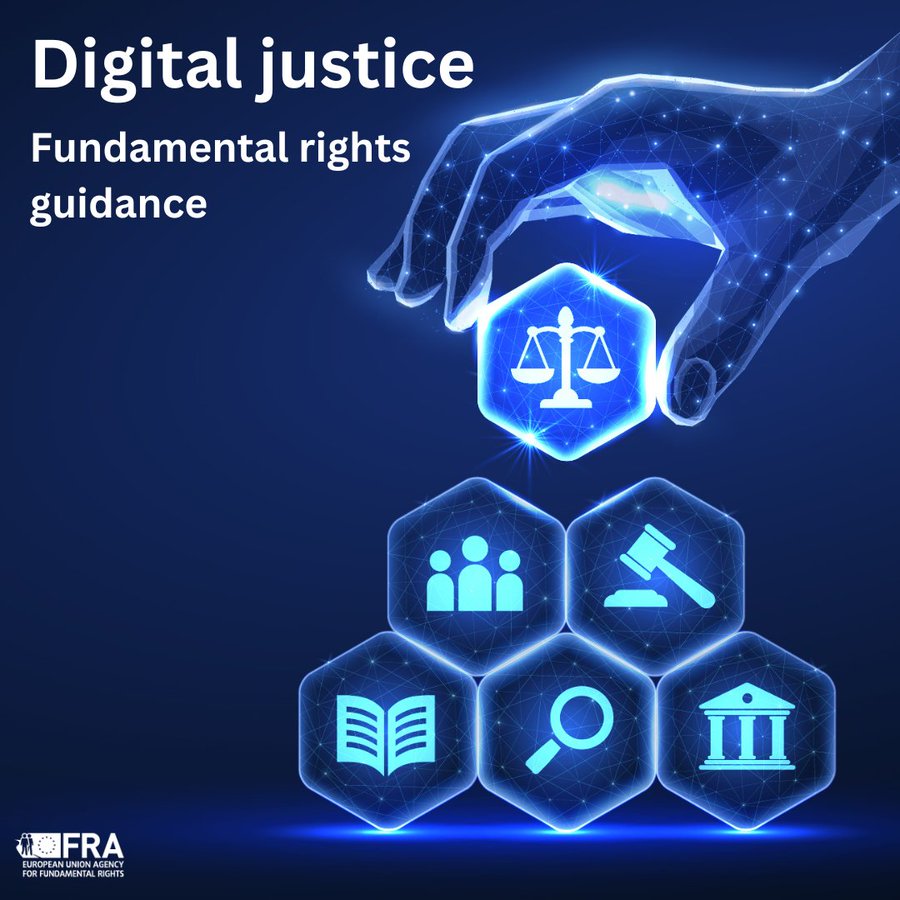News
FRA calls for safeguarding fundamental rights in the digitalisation of justice
In its latest report, ‘Digitalising Justice: A fundamental rights-based approach’, the European Union Agency for Fundamental Rights (FRA) stresses the importance of ensuring that the digital transformation of European justice systems does not undermine fundamental rights such as access to justice, personal data protection and the right to a fair trial.
The study carried out by the FRA analysed 31 digital justice tools in seven EU countries – Austria, Estonia, France, Italy, Latvia, Poland and Portugal – and involved interviews with legal professionals, government officials and technical experts. Among the solutions evaluated are videoconferencing systems in trials, online platforms for case management, crime reporting and access to justice, and AI-based sentence anonymisation tools.
As FRA Director Sirpa Rautio points out, "Digitalisation holds great promise for justice systems. It can make justice swifter, easier and more accessible. But to truly reap its benefits, we must carefully assess its full impact on fundamental rights. We must also bridge the digital divide and ensure access to justice for all, so that no one is left behind."
The FRA stresses that digitalisation will only achieve its objectives if robust safeguards are in place. The report recommends five key areas of focus:
- Incorporating fundamental rights safeguards from the design stage of digital tools;
- Extending consultation on the development of digital tools to human rights experts, civil society, and persons with disabilities;
- Maintaining non-digital alternatives, ensuring that no one is excluded on grounds of age, poverty or digital literacy;
- Strengthen training in fundamental rights, preventing risks of discrimination and data breaches;
- Promote continuous monitoring to improve existing solutions.
The Portuguese case
In Portugal, the analysis, carried out by the Permanent Observatory for Justice of the Centre for Social Studies of the University of Coimbra, focused on five digital tools – Magistratus, RAL+, Plataforma de Acesso ao Direito [Access to Law Platform], Videoconferencing System [Sistema de Videoconferência] and Judicial Decision Anonymisation Software [Software de Anonimização de Decisões Judiciais] – based on three dozen interviews with magistrates, lawyers, government officials and technical staff.
The study identified four additional critical challenges beyond those already mentioned by the FRA: instability in public justice policies, lack of institutional coordination, scarcity of financial and human resources, and absence of a culture of continuous monitoring and evaluation of digital solutions.
Portuguese professionals recognise the potential of digitalisation, but warn of its limitations. ‘One day, we may come to the conclusion that certain public activities cannot be digitalised like others’, noted one judge. He also pointed out that ‘This idea that everything has to be digitalised in the same way to be “simplex” and automated may have its limits.’
On the other hand, as a lawyer quoted in the study points out, ‘Even someone with digital skills, when faced with a crisis situation, has difficulty dealing with online bureaucracy’, which is corroborated by the conclusions of another judge, who noted that, ‘At the moment, no one can be a judge, lawyer or prosecutor without computer skills. Anyone who enters the CEJ [Centre for Judicial Studies] and is technologically illiterate will not be able to perform their duties.’
With this report, the FRA reinforces its call for fair, inclusive and fundamental rights-respecting digitalisation, ensuring that technology serves justice – and not the other way around.
____________
Comparative Report: https://fra.europa.eu/en/publication/2025/digitalisation-justice
Report on Portugal: https://fra.europa.eu/sites/default/files/fra_uploads/digitalising_justice_-_country_research_-_portugal.pdf


